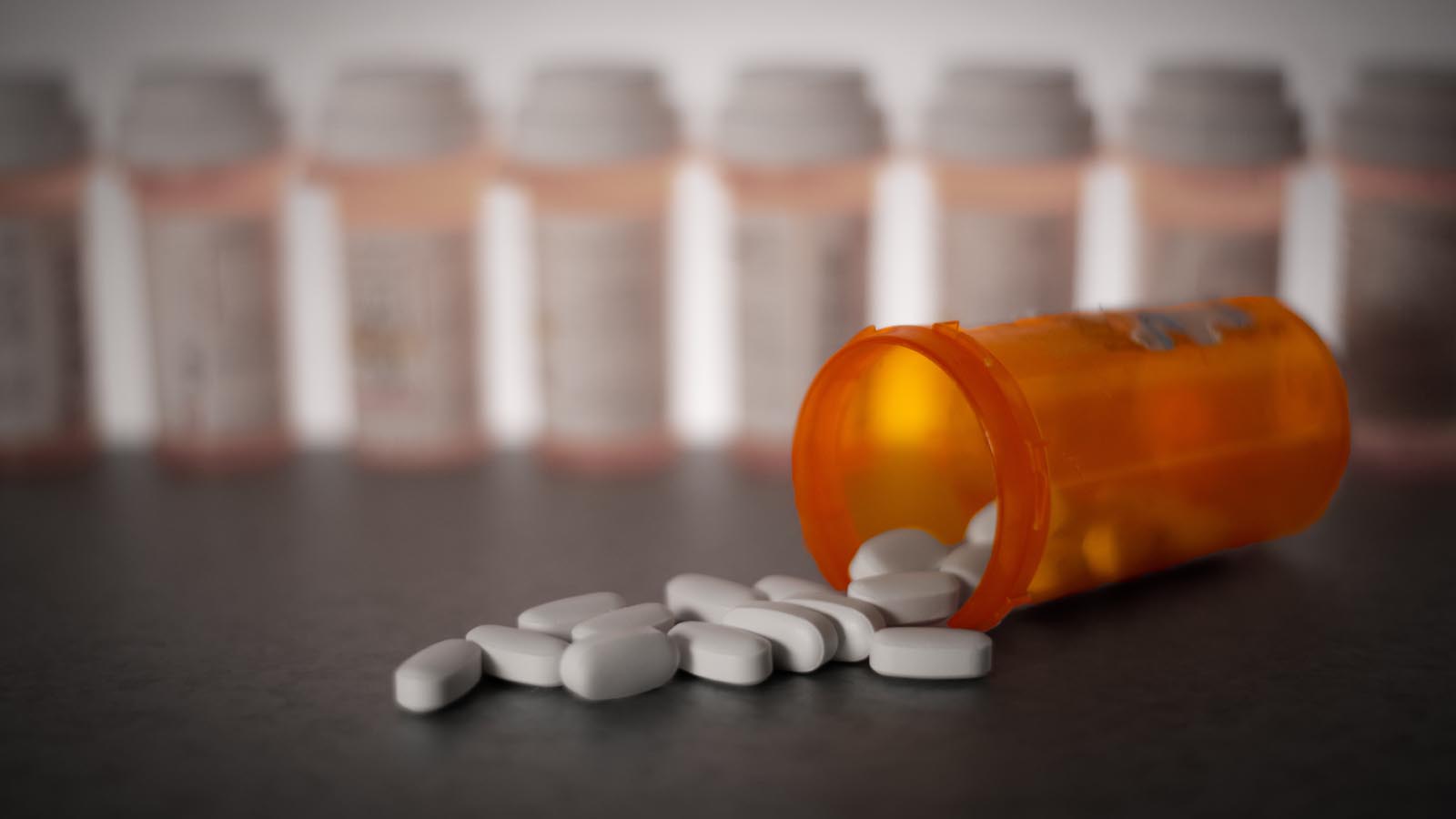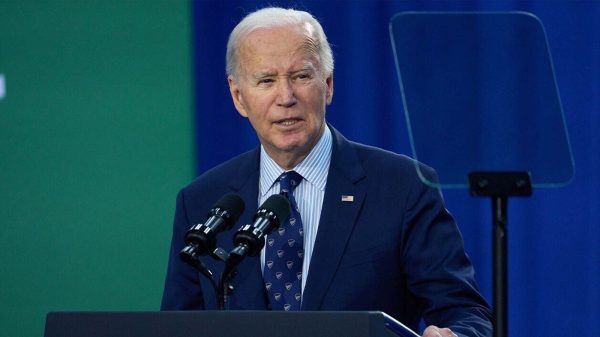Artificial intelligence has developed a treatment for cancer in just 30 days and can predict a patient’s survival rate.
In a new study published in the journal Chemical Science, researchers at the University of Toronto along with Insilico Medicine developed a potential treatment for hepatocellular carcinoma (HCC) with an AI drug discovery platform called Pharma.AI.
HCC is the most common type of liver cancer and occurs when a tumor grows on the liver, according to Cleveland Clinic.
Researchers applied AlphaFold, an AI-powered protein structure database, to Pharma.AI to uncover a novel target — a previously unknown treatment pathway — for cancer and developed a “novel hit molecule” that could bind to that target without aid.
The creation of the potential drug was accomplished in just 30 days from the selection of the target and after synthesizing just seven compounds.
After a second round of generating compounds, they discovered a more potent hit molecule — but any potential drug would need to go through clinical trials before widespread use.
“While the world was fascinated with advances in generative AI in art and language, our generative AI algorithms managed to design potent inhibitors of a target with an AlphaFold-derived structure,” Alex Zhavoronkov, founder and CEO of Insilico medicine, said in a statement.
AI is rapidly changing the way drugs and medicine are discovered and developed, as the traditional method of trial and error is slow, expensive and limits the scope of exploration.
“This paper is further evidence of the capacity for AI to transform the drug discovery process with enhanced speed, efficiency, and accuracy,” Michael Levitt, a Nobel Prize winner in chemistry, said. “Bringing together the predictive power of AlphaFold and the target and drug-design power of Insilico Medicine’s Pharma.AI platform, it’s possible to imagine that we’re on the cusp of a new era of AI-powered drug discovery.”
In 2022, AlphaFold made a huge breakthrough in both AI and structural biology by predicting protein structure for the whole human genome.
“AlphaFold broke new scientific ground in predicting the structure of all proteins in the human body,” co-author Feng Ren, chief scientific officer and co-CEO of Insilico Medicine, said.
“At Insilico Medicine, we saw that as an incredible opportunity to take these structures and apply them to our end-to-end AI platform in order to generate novel therapeutics to tackle diseases with high unmet need. This paper is an important first step in that direction.”
Researchers also explained how different AI information can revolutionize health care.
“What this paper demonstrates is that for health care, AI developments are more than the sum of their parts,” Alan Aspuru-Guzik, a professor of chemistry and computer science at U of T’s Faculty of Arts & Science, said. “If one uses a generative model targeting an AI-derived protein, one can substantially expand the range of diseases that we can target. If one adds self-driving labs to the mix, we will be in uncharted territory. Stay tuned!”
A separate study published in the journal JAMA Network Open showed an AI system invented by scientists at the University of British Columbia and BC Cancer was able to predict cancer patient survival rates using doctors’ notes.
The model uses natural language processing (NLP), which is a part of AI that can understand complex human language.
The NLP can analyze doctors’ notes after an initial consultation visit and identify individual characteristics specifically for each patient.
It was able to predict six-month, 36-month and 60-month survival with an accuracy rate of over 80%. This model can also determine rates for all cancers, while previous models were only able to apply to certain cancer types.
“The AI essentially reads the consultation document similar to how a human would read it,” lead author Dr. John-Jose Nunez, a psychiatrist and clinical research fellow with the UBC Mood Disorders Centre and BC Cancer, said in a statement. “These documents have many details like the age of the patient, the type of cancer, underlying health conditions, past substance use, and family histories. The AI brings all of this together to paint a more complete picture of patient outcomes.”
Cancer survival rates are traditionally calculated retrospectively and only categorized by a few generic factors such as tissue type and cancer site.
This model was tested using data from 47,625 patients across six BC cancer sites located in British Columbia.
“Because the model is trained on BC data, that makes it a potentially powerful tool for predicting cancer survival here in the province,” Nunez said.
“The great thing about neural NLP models is that they are highly scalable, portable and don’t require structured data sets,” he added. “We can quickly train these models using local data to improve performance in a new region. I would suspect that these models provide a good foundation anywhere in the world where patients are able to see an oncologist.”
AI could be a cutting-edge technology for future cancer care that could be applied in cancer clinics around the world.
“Predicting cancer survival is an important factor that can be used to improve cancer care,” Nunez said. “It might suggest health providers make an earlier referral to support services or offer a more aggressive treatment option upfront. Our hope is that a tool like this could be used to personalize and optimize the care a patient receives right away, giving them the best outcome possible.”
















If i ever get cancer I’ll Rot from the inside out. Or blow my brains out. I dont trust any fkg Drug. Are the Arificial intellegence gona list the side effects. Or the death rates, or the long range, health damages. HELL NO! Just another FDA and CDC FRAUD SCAM aimed at depopulation. SHOVE IT DOWN YOUR OWN THROATS DEMON SCIENTIST. YOU’LL BE KILLED SOON ENUFF!!!.
NOT that I would EVER trust AI, but, I wonder what AI would have to say about the C19 vaccine if they ran the formula across it? Hmmmmm
Bet you’d never hear the answer. *chuckle, chuckle*
God almighty is Alpha and Omega. Stop using his name in SCIENCE. PURE BLASPHEMY. SCIENCE HEATHENS , NO ONE TRUST ANY PHARMA, NOW AS IT IS. OR DEGENERATE SCIENTIST. YOUR WOKE JOKES. YOU HEAR ME? God have Mercy on their souls. Their brain mass has failed many a multitudes.
Well this is the first and last time you will hear about this… not even the tech guys with their AI is going to shut down a a billion dollar plus cash cow for big Pharms government grants for research, development and utilization of experimental drugs, implementation of drugs and the cost of them at the ground zero treatment facilities and Doctors. “Nope not today”
The US Government has patents on cannabis used to cure cancer. Not by smoking it though. That’s why it was outlawed years ago. Big Pharma would have lost billions
Here we go again more Pagan Antichrist communist scientist attempting to play God cuz they’re pissed off that they could never be God